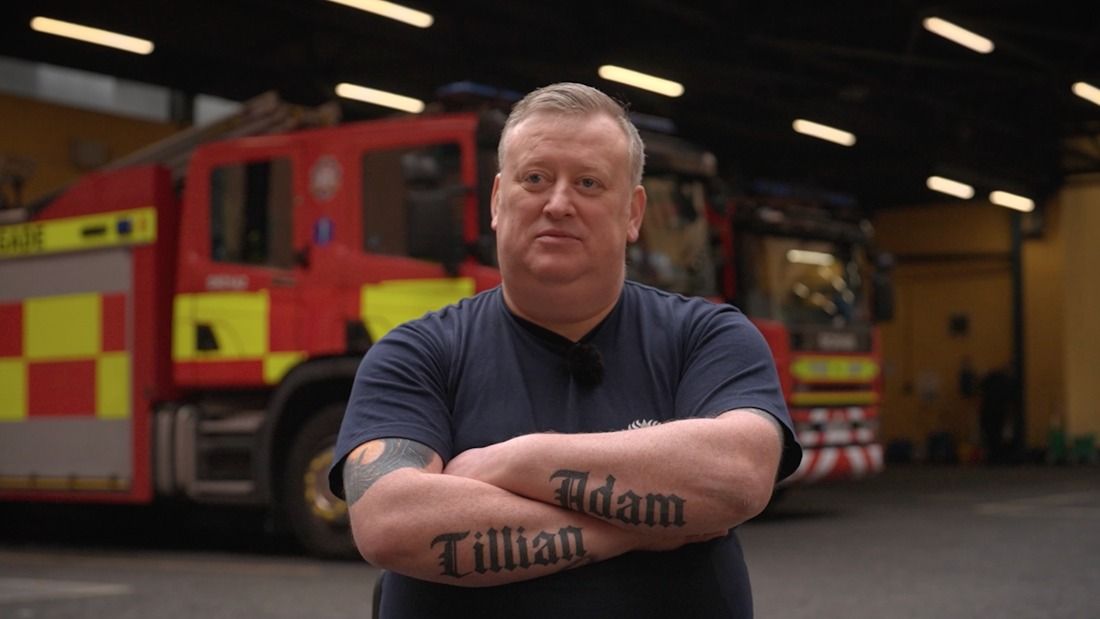

Movember funding to support Ireland’s first responders
When Michelle O'Toole went out on her first call as a fresh-faced firefighter and paramedic with the Dublin Fire Brigade, she felt unprepared for how traumatic it would be.
“On my first callout, on my very first day, there was a fatality where, unfortunately, a very young man lost his life,” she recalls. “I froze. I remember thinking about what I was supposed to be doing but I couldn’t get my feet to actually move.”
Fortunately, for Michelle, a colleague recognised that she was struggling and stepped in to guide her. Later, her station officer invited the Critical Incident Stress Management team into the station to talk to the crew. She says:
“I noticed there and then that men and women behaved a little differently in terms of help seeking,” she says. “While I was very willing and able to ask for support, I noticed some of my male colleagues weren’t quite as ready to put their hands up for that peer support.”
" a project that would improve the mental wellbeing of first responders by training members of their families and friends in basic psychological first aid to better support them "
The experience stayed with her and sowed the seed for the idea for a project that would improve the mental wellbeing of first responders by training members of their families and friends in basic psychological first aid to better support them, which also in turn, supports the families and friends.
HUGS@Home Project
It led to the HUGS@Home Project, led by the Royal College of Surgeons Ireland (RCSI) SIM Centre for Simulation Education and Research, which received funding through Movember’s Veterans and First Responders Mental Health Grant Programme in September 2020.
There is growing evidence that first responders [firefighters, paramedics, and police officers] and military veterans are at increased risk of poor mental health and suicide.
First responders deal with stressful events as part of their daily activities and research shows that they are more likely to experience a range of mental health issues such as depression, PTSD, substance abuse and suicidal thoughts / behaviour.
While support services are available, access can be limited due to lack of resources or the stigma associated with seeking help, and first responders often rely on the 'social support' of their families and close friends.
Movember's funding
The aim of the €5.17M million Veterans and First Responders Mental Health Grant Programme, which is a collaboration between Movember and The Distinguished Gentleman’s Ride, was to find promising mental health or suicide prevention programmes and collaborating with them to help build evidence for their effectiveness.
Working with partners, including Mental Health Ireland and Dublin Civil Defence, the project explores how family members and friends can best support their first responder’s mental health, while looking after themselves through self-care.
How it will help
As part of the pilot study, the project aims to equip up to 100 family members and friends of first responders with the skills they need to both recognise the signs and symptoms of stress and provide a basic helpful intervention to their first responder.
It is hoped that if first responders receive more support for their mental health at home, then relationships with partners, families, friends, and colleagues and their wellbeing will also improve as a result.
Michelle says:
“Movember’s funding has been amazing for enabling us to take on a diverse research team and to recruit and work with people whose voices matter in designing and co-creating the programme. It also funds formal evaluation of our project via the University of Canberra, which ultimately will prove that this approach works!”
Anne-Cecile, Country Director of Movember UK and Europe, says:
“We owe an enormous amount to our veterans and first responder communities. Through this initiative, Movember wants to help our grant funding partners prove that their programs are positively impacting mental health outcomes.”
“We’re really looking forward to working with Royal College of Surgeons in Ireland and helping evaluate and build evidence for programmes that truly make a difference to the lives of these guys and their families. We believe that by supporting the mental health of first responders, we can also improve the wellbeing of their families and friends at the same time, leading to healthier communities.”